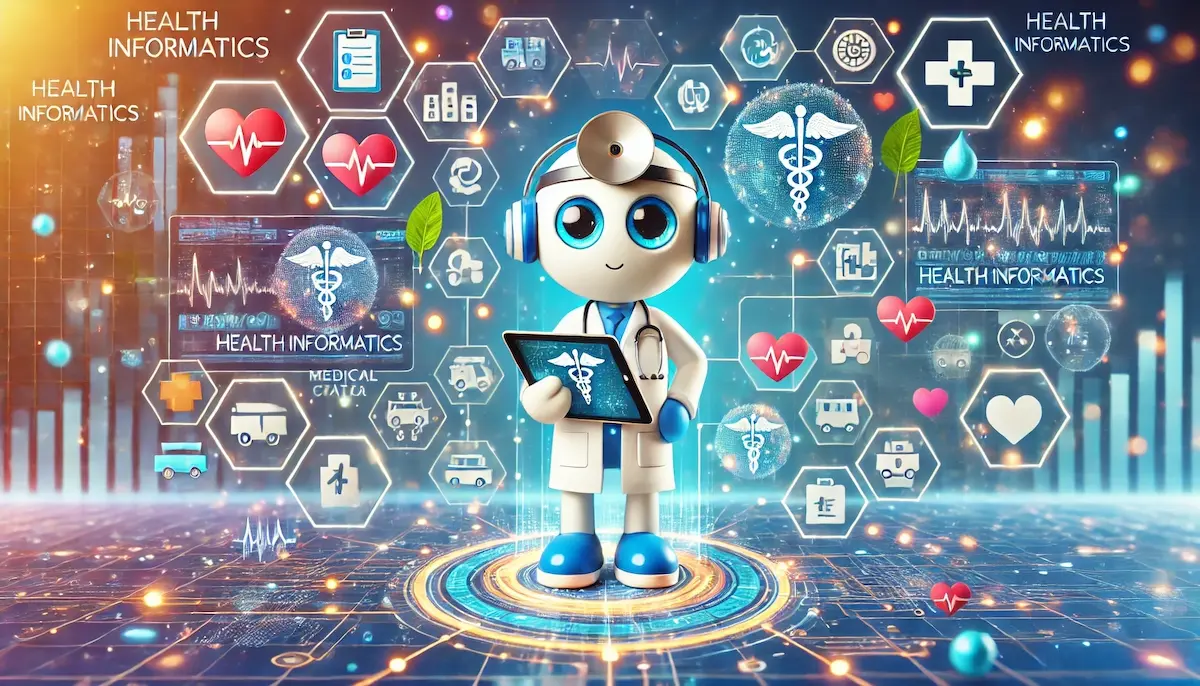Health informatics is a dynamic and evolving field that merges healthcare, information technology, and data management to improve patient care, enhance healthcare services, and streamline administrative processes. By leveraging data and digital tools, health informatics aims to make healthcare more efficient, effective, and personalized. This article explores what health informatics is, its key components, applications, benefits, and future trends.
What is Health Informatics?
Health informatics involves the acquisition, storage, retrieval, and use of healthcare information to foster better collaboration among a patient’s various healthcare providers. It encompasses a range of activities, from managing electronic health records (EHRs) to analyzing healthcare data for research and policy-making. Health informatics is crucial for integrating technology into the healthcare system, enabling more informed decision-making, and improving patient outcomes.
Key Components of Health Informatics
Health informatics is a multidisciplinary field that includes several key components:
1. Electronic Health Records (EHRs)
EHRs are digital versions of patients’ paper charts. They contain comprehensive patient information, including medical history, diagnoses, medications, treatment plans, immunization dates, and test results. EHRs facilitate easy access to patient data for healthcare providers, improving the continuity and quality of care.
2. Health Information Exchange (HIE)
HIE involves the secure exchange of health information among different healthcare organizations. It allows for the seamless sharing of patient data, ensuring that healthcare providers have access to accurate and up-to-date information, which is essential for coordinated care.
3. Clinical Decision Support Systems (CDSS)
CDSS are computer-based systems that provide healthcare professionals with clinical knowledge and patient-specific information to enhance decision-making. These systems can offer reminders, alerts, and clinical guidelines to support diagnosis and treatment decisions.
4. Telehealth and Telemedicine
Telehealth and telemedicine use digital communication technologies to provide healthcare services remotely. This includes video consultations, remote monitoring, and mobile health applications, making healthcare more accessible, especially for patients in remote or underserved areas.
5. Health Data Analytics
Health data analytics involves the systematic use of data and related business insights to drive fact-based decision-making for planning, management, measurement, and learning. Analytics can help identify trends, improve patient outcomes, reduce costs, and enhance operational efficiency.
Applications of Health Informatics
Health informatics has a wide range of applications that benefit various stakeholders in the healthcare system:
1. Patient Care
Health informatics enhances patient care by providing healthcare providers with comprehensive and timely access to patient information. This leads to better diagnosis, treatment planning, and follow-up care.
2. Population Health Management
By analyzing large sets of health data, informatics can identify health trends and risk factors in specific populations. This helps in developing targeted interventions, preventive measures, and health policies.
3. Research and Innovation
Health informatics supports medical research by providing access to vast amounts of health data. Researchers can use this data to identify patterns, test hypotheses, and develop new treatments and technologies.
4. Administrative Efficiency
Informatics streamlines administrative processes such as billing, scheduling, and compliance with regulatory requirements. This reduces administrative burdens and allows healthcare providers to focus more on patient care.
5. Public Health
Health informatics plays a crucial role in public health by tracking disease outbreaks, monitoring public health trends, and managing public health emergencies. It supports timely and effective responses to health crises.
Benefits of Health Informatics
Health informatics offers numerous benefits that improve the healthcare system:
1. Improved Patient Outcomes
By providing accurate and comprehensive patient information, health informatics enables better clinical decision-making, leading to improved patient outcomes.
2. Enhanced Efficiency
Informatics streamlines healthcare processes, reducing redundancies and administrative tasks. This enhances the efficiency of healthcare delivery and reduces costs.
3. Better Data Management
Health informatics ensures that patient data is organized, secure, and easily accessible. This improves data management and supports compliance with regulatory requirements.
4. Increased Accessibility
Telehealth and mobile health technologies make healthcare services more accessible to patients, especially those in remote or underserved areas.
5. Personalized Medicine
By analyzing individual health data, informatics supports the development of personalized treatment plans tailored to each patient’s unique needs and conditions.
The Future of Health Informatics
The future of health informatics is promising, with ongoing advancements in technology poised to further transform healthcare:
1. Artificial Intelligence and Machine Learning
AI and machine learning will enhance data analysis capabilities, providing deeper insights into patient health and improving predictive analytics for better clinical decision-making.
2. Big Data
The integration of big data analytics will enable healthcare providers to analyze vast amounts of health information, uncovering trends and patterns that can lead to more effective treatments and policies.
3. Interoperability
Efforts to improve interoperability among different health information systems will facilitate seamless data exchange, enhancing coordinated care and reducing information silos.
4. Wearable Technology
The proliferation of wearable health devices will provide continuous and real-time health data, enabling proactive health management and early intervention.
5. Blockchain
Blockchain technology holds promise for improving data security, privacy, and integrity in health informatics, ensuring that patient information is protected and accurately maintained.
Health informatics is a vital field that bridges healthcare and technology, driving improvements in patient care, efficiency, and data management. As technology continues to advance, the potential for health informatics to revolutionize healthcare is immense.
Blockfine thanks you for reading and hopes you found this article helpful.
